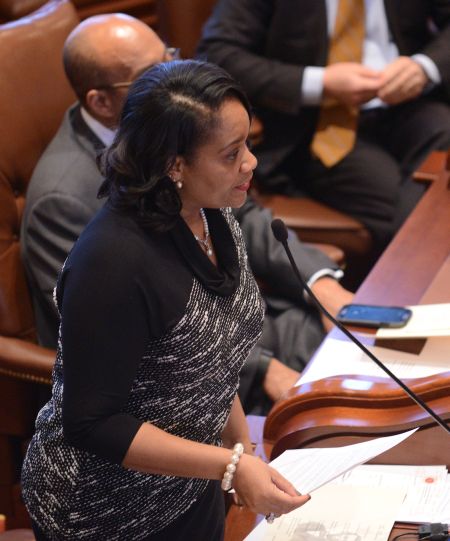 SPRINGFIELD – A 2012 study found that Illinois suspends more African-American students than any other state in the U.S., including a Black-White suspension disparity that is the highest in the country. To address this all-too-apparent disparity and the overall frequency of out-of-school discipline, legislation has passed the Senate that will help to ensure that all students are in school and off the streets as much as possible.
SPRINGFIELD – A 2012 study found that Illinois suspends more African-American students than any other state in the U.S., including a Black-White suspension disparity that is the highest in the country. To address this all-too-apparent disparity and the overall frequency of out-of-school discipline, legislation has passed the Senate that will help to ensure that all students are in school and off the streets as much as possible.
"The students who are being tossed out of the school environment are the very students who should be kept within school boundaries at all costs," said Assistant Majority Leader Kimberly Lightford, sponsor of the legislation. "We need to keep young people in school learning how to succeed and off of the street corner learning how to fail. Expulsions and suspensions should only be a last resort."
The legislation, Senate Bill 100, would address the frequency and racial disparity of suspensions and expulsions in several ways, including the following:
• Disciplinary removals of longer than 3 days must be limited to instances where the student's presence is an on-going threat to the school, and all other options have been exhausted.
• A school board must state how a suspension and expulsion is in the best interest of a school before disciplinary action.
• School districts must establish re-engagement policies for disciplined students.
• Suspended students must be given the opportunity to make up their work.
• School officials must limit suspensions and expulsions to the greatest extent practicable.
Original research into state records has shown that in the 2010-2011 school year, Illinois students lost 1,117,453 instructional days due to disciplinary actions, 95 percent of which were for minor offenses.
"Illinois' highest-need students are dropping out of school or ending up in the criminal justice system - at an enormous cost to Illinois taxpayers - for incidents that could have and should have been addressed within the school environment," said Sen. Lightford. "The confines of the education system are much more advantageous for these students and the future of our state than those of the penal system.







